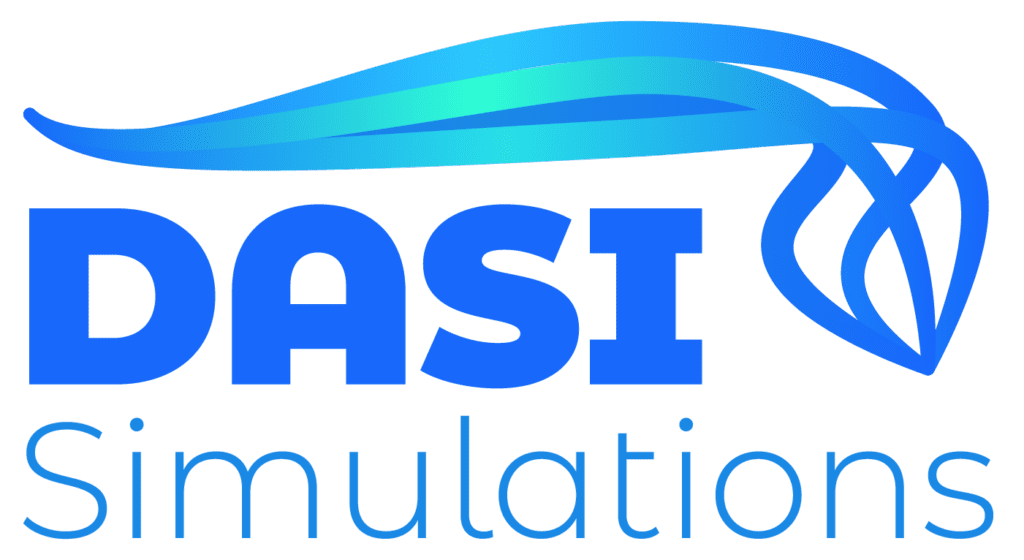- 614-389-3130
- contactus@dasisim.com
Our Products
- AI Simulations for Better Patient Outcomes
Our Products
DASI Simulation's suite of technologies are not just tools, they're catalysts for better patient outcomes. Our AI-powered simulations provide clinicians with advanced simulation capabilities, automatic assessments, and explainable AI. We're setting the new standard in healthcare.
Our Flagship AI-Powered Simulation
Precision TAVI™
Newly Launched
The DASI Portal & Mobile Application
COMING SOON!
DASI Dimensions
DASI'S simulations will help develop a new workflow in every hospital and become an integral tool for heart teams in the USA and potentially worldwide.

Vinod Thourani
Cardiovascular Surgeon
Cardiovascular Surgeon
Piedmont Healthcare
Piedmont Heart Valve Society
Piedmont Heart Valve Society
Products Overview
At DASI Simulations, we are at the forefront of innovation, providing cutting-edge artificial intelligence-driven computational predictive modeling-based decision support products. Our mission is to empower physicians and heart teams with the tools they need to predict, visualize, and optimize patient care, all while streamlining workflows and enhancing efficiency.
*The models featured in these videos are digital representations of manufacturers’ valves.

Key Features of our AI Solutions:
Predictive Visualization
Our solution enables interventional cardiologists to predict and visualize the intricate interaction between various devices and a patient's unique anatomy. This predictive capability frees up valuable time by eliminating the need for time-consuming assessments.
Automated AI-Based Assessments
DASI Simulation's fully automated AI-based assessments ensure a level of accuracy, repeatability, and reproducibility that is unmatched. This not only enhances precision in medical assessments but also accelerates decision-making for heart teams.
Cloud-Based AI Platform
With a simple click, our solution begins with the upload of patient CT angiograms to our secure cloud server. Propelled by proprietary technology, our AI platform runs simulations across comprehensive scenarios, providing interactive content to guide physicians and heart teams towards optimal decisions.
Personalized Support
DASI Simulations goes beyond technology by offering highly qualified biomedical engineers who perform quality checks and are available 24/7 for personalized consultations with heart teams. This ensures that every decision is backed by expert insights.
DASI Simulations provides advanced artificial intelligence-driven computational predictive modeling-based decision support products. Our solution allows physicians to predict and visualize the interaction between various devices and the patient’s unique anatomy while freeing up their time from making time-consuming assessments. DASI Simulation’s fully automated AI-based measurements are highly accurate, repeatable, and reproducible while speeding up the workflow for heart teams to reach optimal decisions quicker.
DASI’s solution starts with a simple click to upload patient’s CT angiograms to our secure cloud server. Based on proprietary technology, our cloud-based AI platform runs simulations spanning comprehensive scenarios for each patient and presents the results to the physician and heart teams as interactive content guiding them to reach the optimal decision. Lastly, DASI’s highly qualified biomedical engineers perform quality checks and are available 24/7 to consult with the heart team for personalized support.
DASI Simulations empowers every heart team with critical insights guaranteeing the identification of the best possible care for individual patients customized to their unique circumstances. One surgery at a time, our technology helps avoid complications, repeated interventions, and saves billions in unnecessary costs from preventable complications.
Reducing TAVR Complications
Hindsight is always 20/20 when it comes to complications during or after heart valve surgery. Almost all device-related complications are because of an imperfect interaction between the implantable device (e.g. an artificial heart valve or clip) and the patient’s unique anatomy. These imperfect interactions result in abnormal stresses on the heart tissues as well as abnormal blood flow which in turn manifest as mild to fatal adverse outcomes including failure to provide adequate relief to the patient’s symptoms. In hindsight after complications, physicians know how they would have handled the case differently. A recent report from the American College of Cardiology describes such complications as impacting the majority of patients and hospitals.
Currently, there are no tools available for physicians to predict and visualize the interaction between various devices and the patient’s unique anatomy before the procedure. Such tools that provide foresight are necessary to avoid complications such as ruptures, obstructions, leakages, rhythm problems, and clots on the valve. Instead, the tools currently available to pre-plan these complex procedures involve manual mark-up of dimensions and identification of cardiac structures from medical images such as CT scans. Surprisingly, even this critical step is more often performed by sales representatives due to its time-consuming nature and is prone to human error.
The problem described above is hindering the ability of physicians and heart teams to make optimal decisions starting with the decision between trans-catheter vs open heart surgery followed by optimal selection of the device, its optimal positioning and customization. Currently, sub-optimal decisions are made due to the lack of predictive quantitative risk assessment tools. The combination of human error from time-consuming measurements and subjective decisions significantly contribute to the prevalence of less than average performance and billions in costs to the healthcare system.
The statistics are not good and nobody — especially your loved one — should become a statistic. We are here to help.
